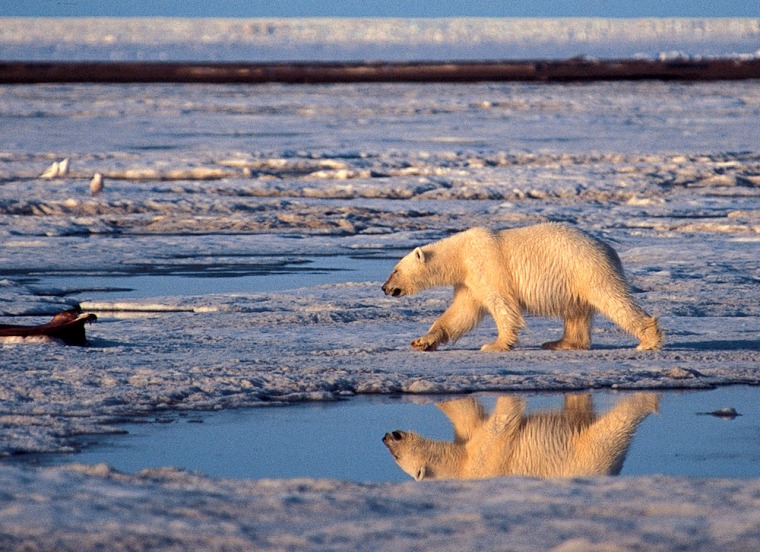"Question: What kind of bear is best?" Jim once asked Dwight on the television show "The Office."
Answer: The brown bear, at least in comparison to the polar bear, according to research published this month in the journal PLoS One.
Polar bear (Ursus maritimus) skulls may put them at a disadvantage when competing with their close relative, the brown bear (Ursus arctos), concluded a team of researchers led by Graham Slater of UCLA.
The researchers created computer simulations of polar and brown bear skulls to estimate their bite strength and the stresses put on the skull by biting. They found that polar bears skulls were less capable of withstanding the strain from chewing hard foods.
Polar bears are the only completely carnivorous bears. Their skulls have adapted to a diet of mostly seal meat and blubber. This diet of soft food resulted in a weaker skull. They also lost the grinding molars that brown bears use to chew up plant matter.
These changes make polar bears less capable of surviving in a rapidly warming arctic, according to the study.
Brown bears eat everything from caribou to berries. Their skulls are built to withstand greater stress from chewing tougher food like grasses.
Since 1996, grizzly bears, a subspecies of brown bear, have been observed moving further north, encroaching on the polar bear's habitat. Arctic sea ice is also disappearing, reducing the territory of the polar bear's seal prey.
With increased competition and less food, the polar bear has become the poster child for extinction threats caused by climate change.
Polar bears evolved rapidly from brown bears within the last million years. They may disappear even more quickly.
